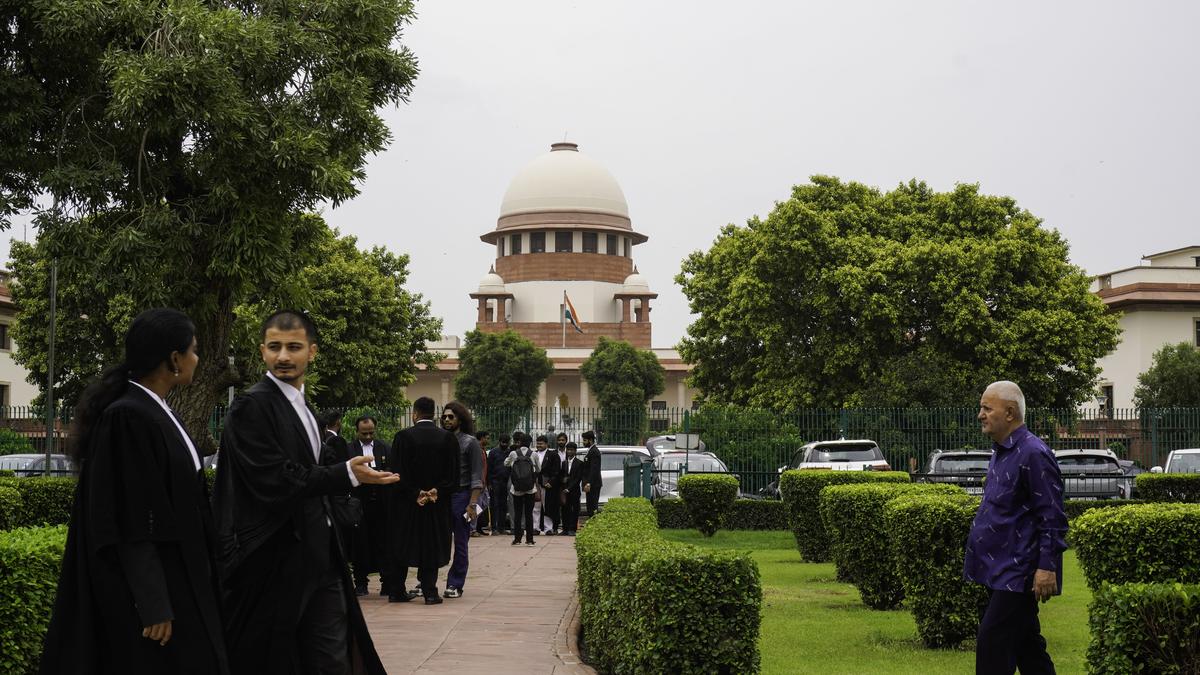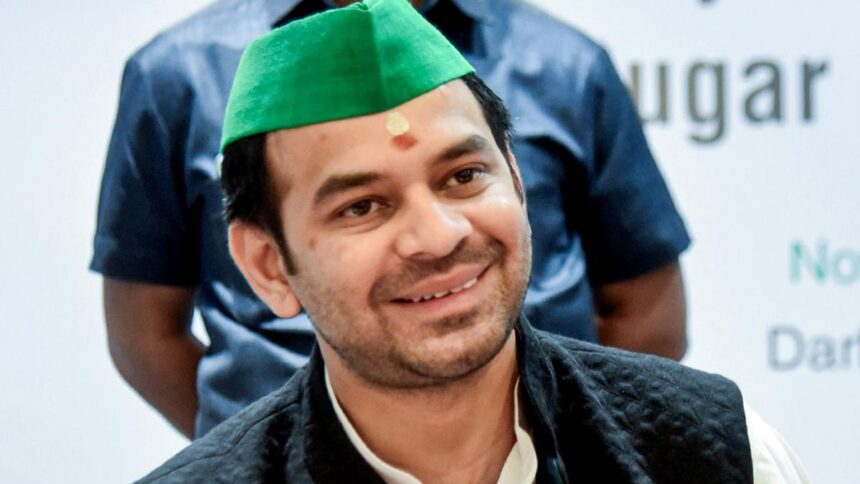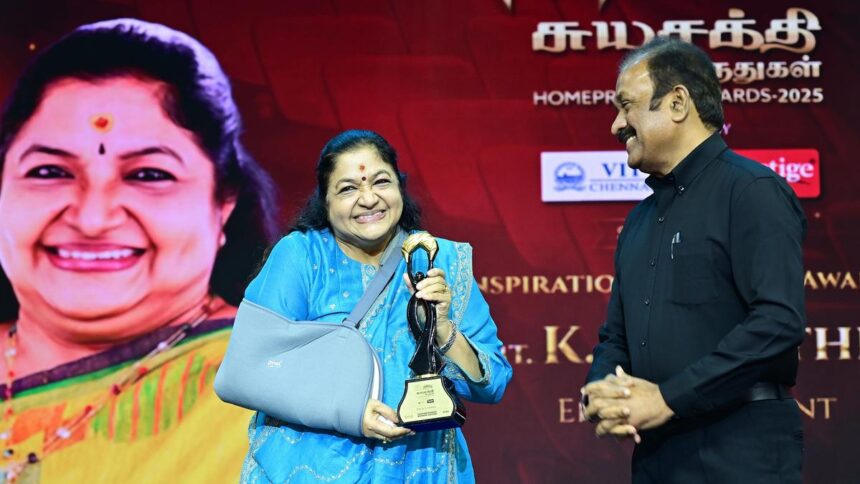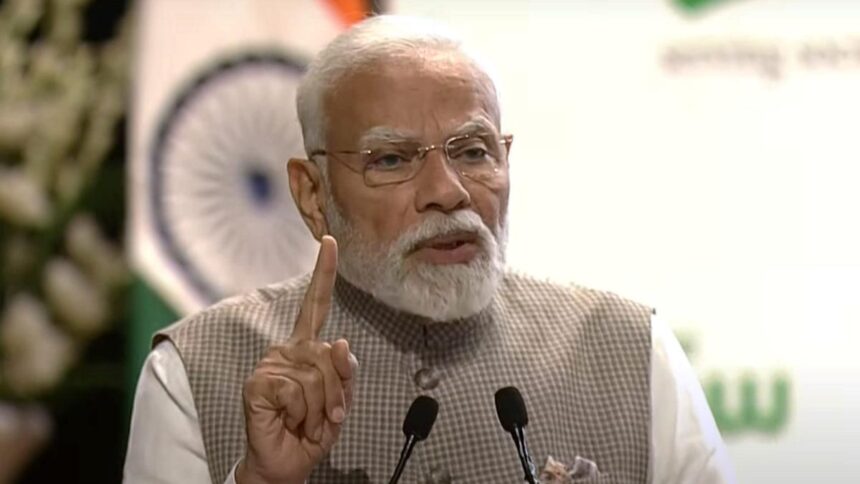
A petition filed by Ramashankar Prajapati before the Supreme Court highlighted that the current reservation policy disproportionately benefitted groups within the SC/ST who were already well-off and enjoying social clout, while the most deprived members continued to swirl in the cycle of extreme poverty. File
| Photo Credit: The Hindu
The Supreme Court has decided to examine a plea to introduce a “system”, similar to the creamy layer concept in Other Backward Classes (OBC), to achieve equitable distribution of reservation benefits among Scheduled Castes/Scheduled Tribes (SC/ST) communities.
A Bench of Justices Surya Kant and Joymalya Bagchi issued notice to the Union government on a petition filed by Ramashankar Prajapati highlighting that the current reservation policy disproportionately benefitted groups within the SC/ST who were already well-off and enjoying social clout, while the most deprived members continued to swirl in the cycle of extreme poverty.

“There is an urgent need to integrate economic criteria into the reservation policy,” Mr. Prajapati, represented by advocates Sandeep Singh and Reena N. Singh, submitted in court.
The petition sought the introduction of a two-tier reservation system to be implemented within SC/ST categories, prioritising individuals from economically weaker sections before extending benefits to those who are relatively well-off.
‘Reform, not reduction in percentage’
“The proposal for restructuring does not involve any reduction in the current percentage of reservation for SC/ST or other minority communities… This reform proposal does not seek to abolish or undermine caste-based reservations but rather to refine them to serve their intended purpose more effectively by introducing an income-based prioritisation mechanism within SC/ST reservations,” Mr. Singh argued for the petitioner.
Justice Kant remarked during the hearing that the concept revolved around the ability of the state to assess the economic capacity within the communities. The Bench, listing the case on October 10, advised a careful dealing of the issue considering the sensitivity of the reservation policy and the likelihood of divergent views.
The case hearing witnessed the petitioner highlight a seven-judge Constitution Bench majority decision of the apex court in State of Punjab versus Davinder Singh calling for a unique set of criteria to identify and exclude the ‘creamy layer’ among SC/ST from reservation benefits.
“The State must evolve a policy for identifying the creamy layer even from the Scheduled Castes and Scheduled Tribes so as to exclude them from the benefit of affirmative action… the criteria for exclusion of the creamy layer from SC/ST for the purpose of affirmative action could be different from the criteria as applicable to the Other Backward Classes (OBCs),” Justice B.R. Gavai (as he was then), a member of the seven-judge Bench, had held in August 2024.
Justice Gavai, whose opinion formed the basis for a push to introduce the creamy layer principle for SC/ST categories, had observed that the exclusion of the affluent from quota benefits would alone achieve real equality.
“In the Constitutional regime, there is no caste system and the country has moved into a casteless society except for the deeming provision under the Constitution for the limited purposes of affording reservation to the depressed class of persons, downtrodden or belonging to SC/ST/OBC. Therefore, any facility or privilege for the promotion of the above categories of persons has to be on a totally different criteria other than the caste may be on economic or financial factors, status of living, vocation and the facilities available to each one of them based upon their place of living (urban or rural),” Mr. Prajapati argued in court.
The petition argued that a small but influential section of SC/ST families has successfully leveraged reservations to attain high-ranking government positions, financial stability and quality education. This has led to “intra-community economic stratification”.
“The relatively affluent continue to benefit from reservations at the expense of those who remain in financial distress,” the petition submitted.
Though political reservations have resulted in significant representation of SC/ST communities in legislatures, the petition said, economic and educational benefits remain concentrated within privileged sections of these communities.
“The political empowerment of SC/ST leaders has not necessarily translated into widespread socio-economic development for the entire community,” it asserted.
Published – August 13, 2025 10:25 am IST



















